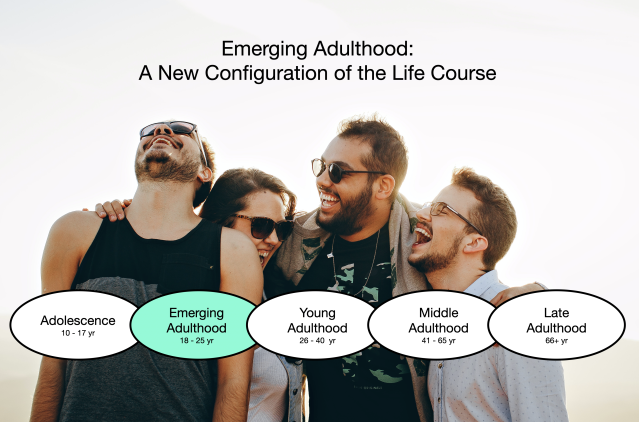Child Development
How Indulgent Parents Make Adulting Such a Challenge
Research finds childhood overindulgence creates problems for emerging adults.
Updated November 10, 2023 Reviewed by Ray Parker
Key points
- "Emerging adults" are in-between, which makes "adulting" a difficult challenge.
- Overindulged children report needing to gain the knowledge and skills necessary for adulting.
- Parents can help their children become independent by requiring them to do chores and budgeting.
It used to be pretty easy to know when you became an adult. The path was lined with cultural milestones that showed the way: First communion/bar or bat mitzvah, a driver's license, graduation, moving out of your parent's house and a first job or joining the military, getting married, buying a home, and having a child.
Most people went from adolescence straight into adulthood. Today, the path is not that simple. Today's adolescents go through a stage of development called "emerging adulthood" before entering adulthood.
Jeffrey Arnett (2000) was the first psychologist to propose the concept of emerging adulthood, a period of development between the ages of 18 and 25 that exists only in cultures that allow young people a prolonged period of independent role exploration during the late teens and twenties.
Arnett suggests that "emerging adulthood is neither adolescence nor young adulthood but is theoretically and empirically distinct from them both. Emerging adulthood is distinguished by relative independence from social roles and from normative expectations."
Emerging adults see themselves sometimes as an adolescent and sometimes as an adult. They are in-between, which makes "adulting" a difficult challenge.

What Is Adulting?
Kelly Williams Brown is credited with coining "adulting" in her book Adulting: How to Become a Grown-up in 535 Easy(ish) Steps. Here are some ways this term is classified:
- "Adulting is the practice of behaving with the characteristics of a responsible adult, especially completing everyday essential tasks" (Houy, 2023).
- "Adulting is the assumption of tasks, responsibilities, and behaviors traditionally associated with normal grown-up life, along with the implication that the individual in question does not particularly identify as an adult and that acting as one does not come naturally" (Wigmore, 2023).
Childhood Overindulgence
According to a 2014 paper by Clarke and colleagues, "Overindulging children is giving them too much of what looks good, too soon, and too long. It gives them things or experiences that are inappropriate for their age, interests, and talents. It is giving things to children to meet the adult's needs, not the child's."
Their research identified three types of childhood overindulgence. The first they call "too much." The second they label "overnurture." And the third they describe as "soft structure." Parents can overindulge children in one, two, or all three ways (Bredehoft and colleagues, 1998).
Research indicates that childhood overindulgence creates problems for emerging adults who may not have the knowledge and skills necessary for adulting.
Research by myself and colleagues in 1998 reported that "The great majority (71 percent) of the overindulged subjects reported having difficulty knowing what is enough, or what is normal as adults." They said:
- "I have extreme difficulty making decisions."
- "I need praise and material reward to feel worthy."
- "I don't have to grow up because other people will take care of me."
- "I feel like I need lots of things to feel good about myself."
- "I have to buy gifts to be loved."
- "I constantly need outside affirmation from my friends."
Doing for Children What They Should Be Doing
One individual related the following story: Growing up, her mother or a maid always picked up her clothes, washed, ironed, folded, and put them away. She was taken care of.
Her mother did this as a sign of love. But when the girl went to college, she asked her roommates, "Which one is the washer, and which is the dryer?" Her roommates teased her about it and made it a running joke for the rest of the year.
After that, her mother came every Friday to collect her clothes and returned them every Sunday. She put them away for her daughter, pressed and folded. Her mother's over-nurturing behavior had good intentions, but these good intentions left her daughter lacking in essential life skills.
Suppose adulting is about mastering everyday tasks, responsibilities, and behaviors associated with being a grown-up. In that case, overindulging your child presents significant roadblocks to becoming the adult you always wanted them to become.
Two essential adult responsibilities are being able to manage money (become financially independent) and creating a life for oneself by becoming personally independent.
Becoming Financially Independent
According to the Pew Research Center, Gen Z comprises individuals born between 1996 and 2012 (Parker & Igielnik, 2020). Today, the majority of Gen Z are aged 18-26, emerging adults, of which a majority are living at home with their parents.
According to a new study (Klongpayabal, 2023), nearly 45 percent of parents give financial support to one or more of their adult children, on average, $1,400 monthly for food, housing costs, and cell phone payments. Fifty-seven percent of adult children living at home still get financial help from their parents.
Twenty-one percent of parents help pay their children's student loan payments, an average of $245 monthly. According to a recent national poll, Gen Z has the lowest level of financial literacy of any generation (Godbout, 2021).
What's a Parent to Do?
Becoming an empty nester is not as simple as it used to be. Here are a few suggestions that may help parents and emerging adults navigate the bumps in the road on the way to becoming an adult:
- Require your children of any age to do chores. Chores teach valuable life skills that they will need to become a functioning adult.
- If your Millennial or Gen Z-aged child lives at home, you must negotiate a new set of rules for living with each other. Sit down and write a contract for living with each other.
- Unfortunately, money is still a taboo topic in many families. Talk with your children about money and budgeting. Call it Adulting 101: How to Make a Budget.
- Teach your children how loans and interest work before they get buried in debt and how to get out of debt if they are currently in debt. For example, if your college-age student wants to attend a college where they will finish with $80,000 in student loan debt, have them use a free online student loan calculator. They may change their mind when they see that at 6.8 percent interest, they will be paying monthly payments of $521.54 for 30 years until they are 53.
- Teach your children the difference between paying the total monthly amount on a credit card bill versus paying the minimum and being charged a high interest rate. This can be quickly done by having them use a free online credit card interest calculator. Also, show them how to avoid late charges by setting up automatic payments through their checking account.
Practice Aloha. Do all things with love, grace, and gratitude.
© 2023 David J. Bredehoft
Facebook image: Prostock-studio/Shutterstock
References
Arnett, J. J. (2000). Emerging adulthood: A theory of development from the late teens through the twenties. American Psychologist. 55(5), 469-480. DOI: 10.1037//0003-066X.55.5.469
Bredehoft, D. J., Mennicke, S. A., Potter, A. M., & Clarke, J. I. (1998). Perceptions attributed by adults to parental overindulgence during childhood. Journal of Marriage and Family Consumer Sciences Education, 16, 3-17.
Brown, K. W. (2013). Adulting: How to become a grown-up in 535 easy(ish) steps. New York, NY: Grand Central Press.
Coccia, C., & Darling, C. A. (2015). Indulgent parenting and life satisfaction of college students: Examination of eating, weight, and body image. Journal of Family Issues. 38(9), 1191–1214. https://doi.org/10.1177/0192513X1558016
Cui, M., Darling, C. A., Coccia, C., Fincham, F. D., & May, R. W. (2019). Indulgent parenting, helicopter parenting, and well-being of Parents and emerging adults. Journal of Child and Family Studies. 28, 860-871. doi.org/10.1007/s10826-018-01314-3
Godbout T. (2021). Which generation is most financially literate? National Association of Plan Advisors. https://www.napa-net.org/news-info/daily-news/which-generation-most-financially-literate
Horner, S. H., Solheim, C. A., Zuiker, V. S., & Ballardd, J. (2016). The link between childhood overindulgence and adult financial behaviors. Journal of Financial Counseling and Planning. 27(1), 80-91.
Houy, G. (2023). Self-confidence of individuals in developing essential adulting skills and the perceived student value of an adulting course in educational entities (Doctoral dissertation). Retrieved from https://ttu-ir.tdl.org/items/f7e8fd3d-f0b4-434a-a314-cbdbc382286a
Klongpayabal, B. (2020, May 22). 45 percent of parents still cover costs for their adult children. Retrieved from: https://www.savings.com/insights/financial-support-for-adult-children-s…
Parker, K., & Igielnik, R. (2020, May 14). What we know about Gen Z so far. Pew Research Center. Retrieved from: https://www.pewresearch.org/social-trends/2020/05/14/on-the-cusp-of-adu…
Steinmetz, K. (2016, June 8). This is what adulting means. Time. Retrieved from: https://time.com/4361866/adulting-definition-meaning/
Wigmore, I. (2023, November 3). Adulting. Retrieved from: https://www.techtarget.com/whatis/definition/adulting
Zimmer, B., Solomon, J., & Carson, C. E. (2016). Among the new words. American Speech. 91(1), 81-99. https://doi.org/10.1215/00031283-3509502




